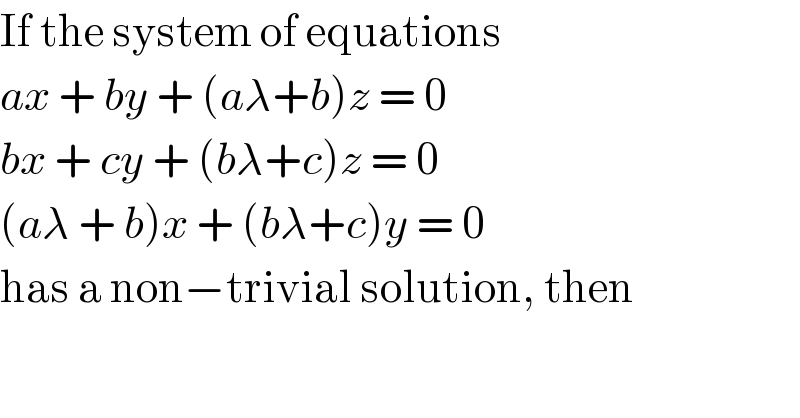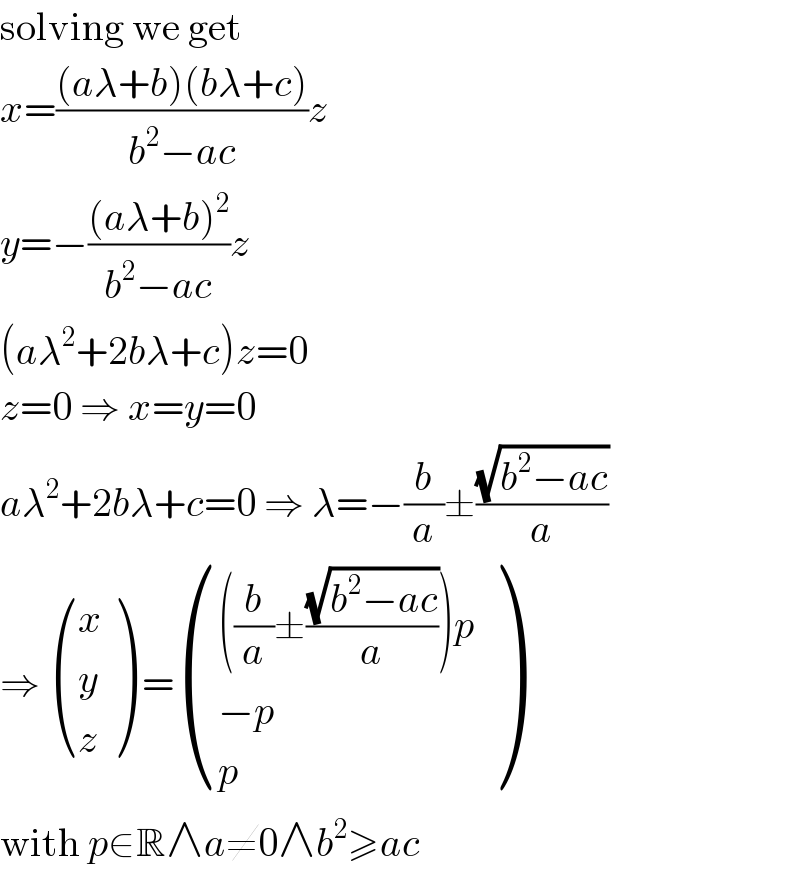
Question and Answers Forum
Question Number 56422 by gunawan last updated on 16/Mar/19

Answered by MJS last updated on 17/Mar/19

| ||
Question and Answers Forum | ||
Question Number 56422 by gunawan last updated on 16/Mar/19 | ||
 | ||
Answered by MJS last updated on 17/Mar/19 | ||
 | ||
| ||